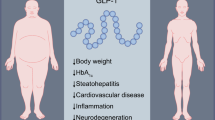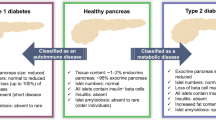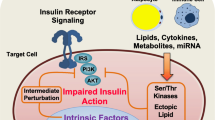Abstract
Insulin-like growth factor I (IGF-I) synergistically enhances epidermal growth factor (EGF) -stimulated proliferation of intestinal epithelial cells. A possible mechanism of this synergy is that EGF acts as a “competence” factor increasing the fraction of proliferating cells by promoting transition from G0 to G1, thus allowing IGF-I, a “progression” factor, to act as a proliferative agent on the cycling population. Consistent with this hypothesis would be temporally distinct actions wherein initial brief exposure to EGF would permit synergy, whereas pretreatment with IGF-I would not. Rat intestinal epithelial cells of the IEC-18 crypt cell line were serum-deprived, then treated with EGF (5×10−9 M), IGF-I (5×10−9 M), or insulin (2×10−6 M) for a 30-min pulse and then media containing EGF, IGF-I, insulin, or no factor was substituted for 48 hr. IGF-I and EGF each stimulated enterocyte proliferation; together they synergistically promoted cell growth. A brief pulse of IGF-I neither induced cell proliferation nor enhanced the EGF effect. Initial brief exposure to EGF, however, was equally efficacious as continuous exposure and allowed full synergy with IGF-I. Insulin at supraphysiologic levels acted similarly to IGF-I. Thus, EGF acted as a competence factor priming the cells for subsequent action by IGF-I. The cell kinetic parameters of these growth factors may be important to both physiologic and pathologic enterocyte growth regulation.
Similar content being viewed by others
References
Duncan MD, Harmon JW, Korman LY, Bass BL: Insulin and insulin-like growth factors enhance the proliferative effect of EGF on cultured human intestinal epithelial cells. Gastroenterology 98(5):A410, 1990
Barnes D, Sato G: Methods for growth of cultured cells in serum-free medium. Anal Biochem 102:255–270, 1980
Barnes D, Sato G: Serum-free cell culture: A unifying approach. Cell 22:649–655, 1980
Zendegui JG, Inman WH, Carpenter G: Modulation of the mitogenic response of an epidermal growth factor-dependent keratinocyte line by dexamethasone, insulin, and transforming growth factor-beta. J Cell Physiol 136(2):257–265, 1988
Fayed YM, Tsibris JC, Langenberg PW, Robertson AL Jr: Human uterine leiomyoma cells: binding and growth responses to epidermal growth factor, platelet-derived growth factor, and insulin. Lab Invest 60(1):30–37, 1989
Conteas CN, McMorrow B, Luk GD: Modulation of epidermal growth factor-induced cell proliferation and receptor binding by insulin in cultured intestinal epithelial cells. Biochem Biophys Res Commun 161(2):414–419, 1989
Kurokowa M, Lynch K, Podolsky DK: Effects of growth factors on an intestinal epithelial cell line: Transforming growth factorβ inhibits proliferation and stimulates differentiation. Biochem Biophys Res Commun 142(3):775–782, 1987
Goustin AS, Leof EB, Shipley GD, Moses HL: Growth factors and cancer. Cancer Res 46:1015–1029, 1986
Pledger WJ, Stiles CD, Antoniades HN, Scher CD: An ordered sequence of events is required before BALB/c-3T3 cells become committed to DNA synthesis. Proc Natl Acad Sci USA 75:2839–2843, 1978
Leof EB, Wharton W, Van Wyk JJ, Pledger WJ: Epidermal growth factor (EGF) and somatomedin C regulate G1 progression in competent BALB/c-3T3 cells. Exp Cell Res 141:107–115, 1982
Chen Y, Rabinowitch PS: Platelet-derived growth factor, epidermal growth factor, and insulin-like growth factor I regulate specific cell cycle parameters of human diploid fibroblasts in serum-free culture. J Cell Physiol 140(1):59–67, 1989
Kadowaki T, Koyasu S, Nishida E, Tobe K, Izumi T, Takaku F, Sakai H, Yahara I, Kasuga M: Tyrosine phosphorylation of common and specific sets of cellular proteins rapidly induced by insulin, insulin-like growth factor I, and epidermal growth factor in an intact cell. J Biol Chem 262(15):7342–7350, 1987
Duncan MD, Korman LY, Bass BL: The IGF-1 receptor mediates both insulin and IGF-1 proliferative response in human enterocytes. Gastroenterology 100(5):A638, 1991
Author information
Authors and Affiliations
Additional information
This work was supported in part by grants from the American College of Surgeons and the Society for Surgery of the Alimentary Tract.
Rights and permissions
About this article
Cite this article
Duncan, M.D., Korman, L.Y. & Bass, B.L. Epidermal growth factor primes intestinal epithelial cells for proliferative effect of insulin-like growth factor I. Digest Dis Sci 39, 2197–2201 (1994). https://doi.org/10.1007/BF02090371
Received:
Revised:
Accepted:
Issue Date:
DOI: https://doi.org/10.1007/BF02090371




